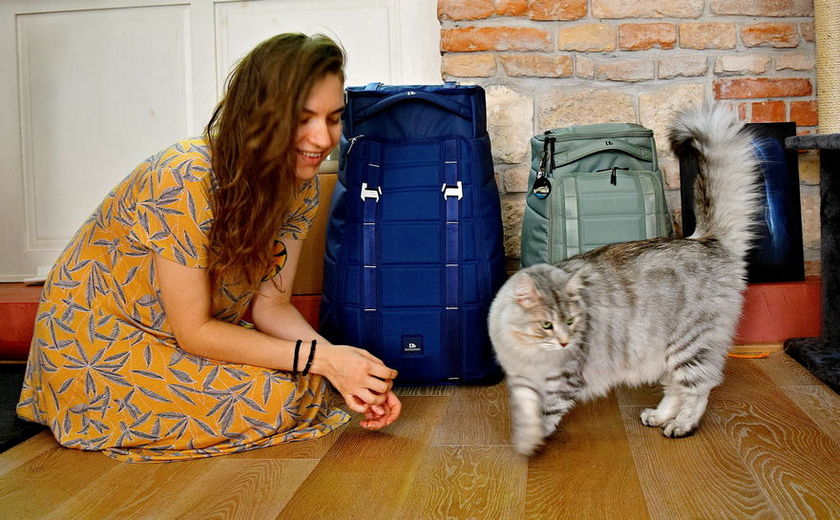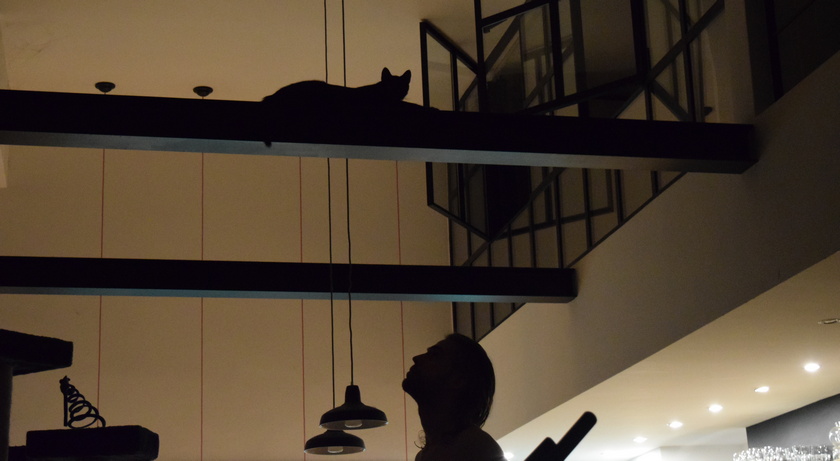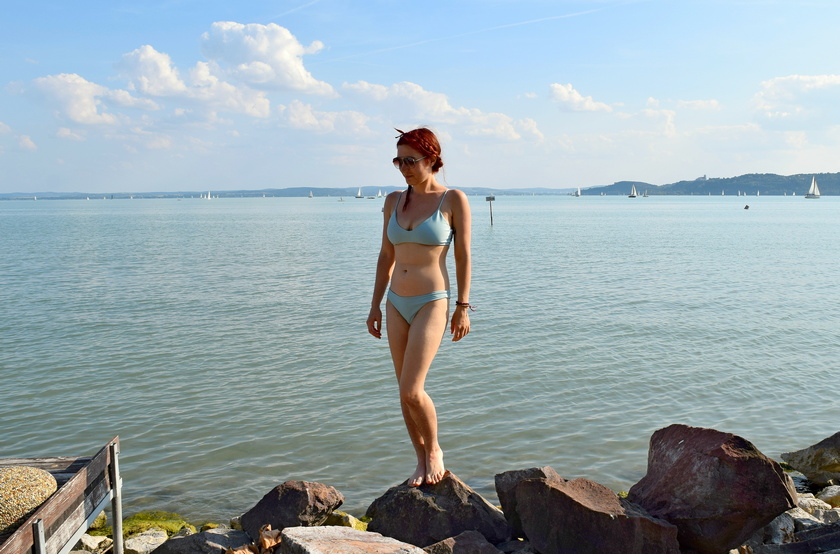This is, for the most part, a recollection of our personal and recent experiences house sitting in Budapest, Balaton and Hungary to give you some idea of what it could be like for you. Towards the end of the post I get less self-centred and talk more about how you can house sit in Hungary: where to find house sits, useful phrases to know and how to survive life in Hungary. House sitting is certainly not as popular in Hungary as it is in say the UK, Australia or Canada, but it has started to trickle in through that most pesky of beasts - the expats. This means, if it's your first time house sitting, that it's both more likely for you to secure a house sit here (less competition) and less likely for you to secure a house sit here (fewer sits). Lol. First things first:
Why House Sit in Budapest and/or Balaton, Hungary (Hey Why Not)
Reasons to house sit in Budapest and/or Balaton, Hungary specifically, probably just boil down to why you'd want to visit those places in the first place: Budapest is hip and a great place to meet people from all over the planet, it's has beautiful architecture and this odd combination of being a bit grubby around the edges (which makes Westerns feel 'edgy') but is simultaneously super 'safe'... so long as you're middle class, not houseless aka living on the street and/or Romani or any other PoC... institutionalized racism and white supremacy are pretty seriosly embedded into Hungarian society (yes, even left).
Balaton is the largest lake in Central Europe with beaches and vineyards. It was very popular with Eastern Germans during the Cold War (hence all the 'Zimmer Frei' signs meaning: 'free room'), as it was the closest they could get to the sea. Venders and landlords are still more likely to speak German there, especially the older generation.
House Sitting Hungary: Expats & Locals, Hi-Tech Condos & Gentrified Villages
House Sitting Budapest, the 'Paris of the East'
- Feed them at 9am and 9pm (SUCH. CONVENIENT. TIMES).
- Remove the poop from the kitty litter ever few days (it was special clever litter where the whole thing only needed changing once a month, and we were instructed to not bother doing that #grateful)
- Play with them... irresistible:
If it wasn't enough that the pet sitting was easy as, (it was), the owner wowed us by also being one of the most generous home owners we've ever come across. She gave us food, alcohol, weed, crypto advice - including how to buy litecoin, clothes, and money. House sitting is generally seen as an exchange - the home owners offer free accommodation and the house sitters offer free labour. It's nice when the home owners are generous.
The location of the house sit was insanely convenient - right by Deák, which is the centre of Budapest. And the flat itself was comfy, spacious, beautiful and high tech - the level of trust from her was really nice too.
HOUSE SITTING BALATON, AKA 'DER PLATTENSEE'
- wake up before 8am
- pick up cat poop to prevent the dogs from eating it
- let the chickens out
- feed the cats twice a day
- feed the dogs twice a day
- feed the chickens and fish sporadically
- walk the dogs for 45 minutes
- pick up the dog poop in the garden
- water over 60 plants
- check the mail
- readjust the pool ph (unfortunately it was unheated and too cold to use)
- check for tics
- keep the cats out at night and the dogs in
- keep one of the dogs away from those 60 plants at all times.
The location was advertised as near Balaton, but with buses that only went every two hours and by not being allowed away from more than 2.5 hours (because of the plant-eating dog... yet another proof that vegan dogs do exist!), we only got to visit Balaton itself once. I'm still grateful for this house sit though, it really made me realise how much more my labour is worth, and how much I've changed over the years. When I first started this blog, 'living luxuriously' meant a lot to me. Now it means nothing. I also liked being isolated, now I don't. Further, it further confirmed for me that cats and especially dogs have a rough time of it around humans. What's the difference between a dog's life and a prisoner's life? Freedom of movement? Freedom of choice? Anyway..
Life in Hungary: Soft Dictatorship, Sexism, Racism, etc. and Some Nice Nature
#1. LEARN SOME HISTORY!
Hungary is not Russia, nor Slavic, it was never actually communist (don't believe the state propaganda, the whole Eastern Bloc, the USSR, Cuba, North Korea, etc. and esp China were and are state capitalist systems) and it has a sad dual history of shitting on many smaller ethnic groups and at the same time being shat on by many bigger states and empires (Hungarian love to emphazise the latter point and conveniently forget the former): as part of the Austro-Hungarian empire, it was seen as an oppressor by the ethnic groups the empire was busily oppressing (Serbians, Slovaks, Slovenians, Romanians, Romani, etc.), but at the same time it wasn't really seen as an equal by Austria, and was being oppressed in turn by them.
After WW1, Hungary was sliced up and lost 70% of its land, it was allowed to keep the middle-core of the country). Many Hungarians were turfed out of their homes and sent inwards, deported. Those that stayed became second-class, marginalised citizens in the newly formed nation-states around Hungary. During WW2, Hitler promised to give these territories back to Hungary, thus Hungary sided with the Nazis. But, in 1944, once they realised what was happening to their Jews, Hungary backed out of the deal (unfortunately too late for many Jews, Romanis, gay people and anyone undesirable by the system). This meant that neither the Allies nor the Axis cared about them and the Nazis invaded. The Soviet empire stepped in to 'liberate' them, r*ped and murdered some, and then stayed on for 44 years as invaders. Hungary was the second country (after Russia) to become briefly soviet in 1919 and then first to rebel against the same system in 1956. For 44 years Hungary remained under Soviet oppression, many ended up in forced labour camps and many families were torn apart.
Generational trauma is widespread in Hungary and without the whole 'Nazi shame' thing that Austria and Germany went through, many Hungarians do tend to lean heavily to the right - many are afraid of immigrants (heightened by the fact they are on the border of the EU), many are afraid of groups of men, many are afraid of change and of opening their hearts to others. National pride, national self-victimization and not acknowledging and not taking responsibility for oppressing other ethnic groups, punishment-based thinking, child abuse (yes, even in public spaces - and proudly encouraged wtf), homophobia, deeply ingrained sexism and a deep suspicion of anything that smells 'commie' (or left-wing in general), a fascination with Western Capitalism, technology, military and weapons are still very much part of the culture. Not to speak of the cultures 'gastronomic polyamorous marriage with pork ('kolbász', 'szalonna', 'sertéspörkölt', etc.) and sour cream ('tejföl')', as Laura has written on our sister blog. In short, the flesh- and non-consensual curdled breast milk industry is big in Hungary.
Don't joke that they are little Bolsheviks, don't assume. Listen and learn. But stand up and speak up against abusive behaviour and hate speech. Silence is (enabling) violence.
#2. DON'T SMILE AT STRANGERS!
#3. MAKE A (BIG) EFFORT WITH THE PRONUNCIATION OF THE LANGUAGE!
USEFUL HUNGARIAN WORDS TO KNOW AS A HOUSE SITTER:
- kutya = dog
- macska = cat
- csirke = chicken
- hal = fish
- segítség = help
- állatorvos = vet
- mentő = ambulance
- hol van a ...? = where is the ... ?
- nem bánt = it doesn't harm (e.g. if your dogs runs at someone)
- óvatosan! = careful!
Wrap Up: How to Find House Sits in Budapest, Balaton and Hungary
House sitting in Hungary was not dissimilar to house sitting anywhere else in the world - it tends to be the home owners that make or break the house sit and thus I recommend you think carefully before deciding who to help out and trust your gut - it's got your back. Make sure to video call with them and get the specific set of tasks that you will be required to do well before you arrange the house sit on THS. If you have any questions please email me (travellingweasels@hotmail.com) or find me on instagram (@travellingweasels). Thanks for reading!



















